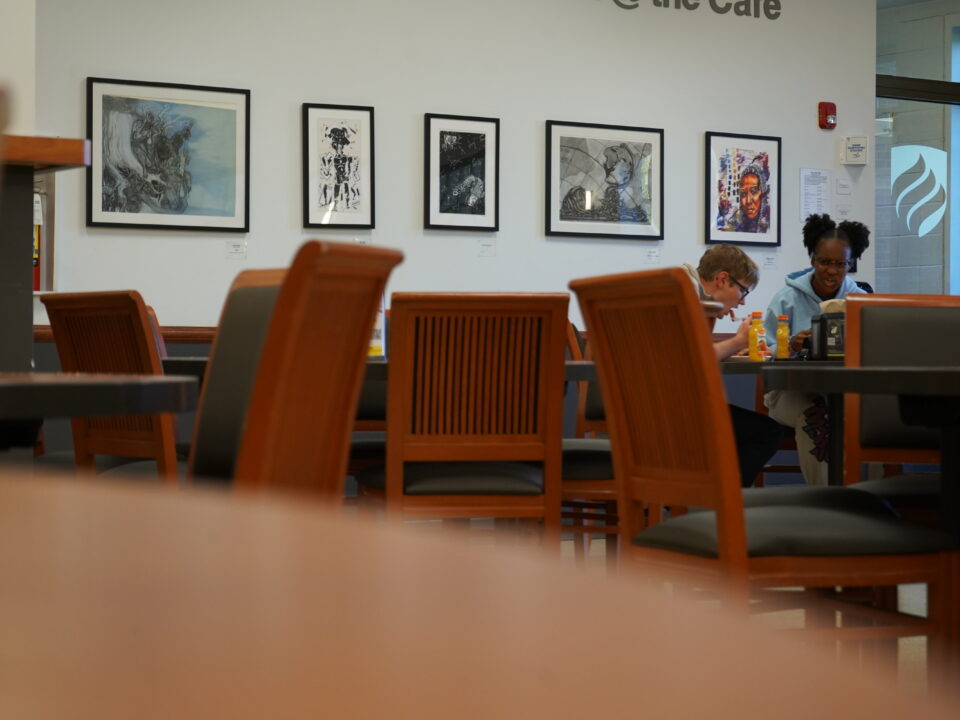For the umpteenth time, diversity matters beyond the board room.
Time and time again, Elmhurst University boasts about the importance of diversity and inclusion to the institution. From establishing new scholarships for underrepresented students, lecture series, and braggadocious promotional banners and emails about the percentages of students of color on campus, EU repeatedly stresses the importance of diversity.
Diversity is often used as a business strategy by institutions to garner recognition, funding, and diverse applicants, but how does EU stand up and show out for their diverse population when there isn’t a physical Office of Diversity and Inclusion (ODI) on campus because the director Jasmin Robinson resigned before the 2021-22 school year began?
At the moment, the office is being overseen by Cheryl Leoni, associate dean of students, and Phil Riordan, vice president of student affairs, as well as the student assistants.
The weight of carrying diversity and inclusion efforts continuously falls on the shoulders of students, in this case the three undergraduate student assistants and student leaders a part of the Coalition of Multicultural Engagement, which is unfair that marginalized students have to show face for an office that is meant to represent and help them.
However, Robinson’s office has been removed in lieu of a flashy spirit shop that took over the former Office of Student Involvement and Diversity and Inclusion (OSIDI) displacing the offices across the hall and leaving out an office space for Robinson or another director for the moment.
Additionally, Leoni and Riordan already have enough work on their plates serving as advisers for multiple organizations and being on the COVID-19 taskforce. Their busy schedules won’t allow them to devote the time the ODI deserves in order to adequately provide for the students.
In her email to students, Robinson points out the lack of space for the office saying, “at this time, there is no physical space for the office but I imagine that will change when a new person is hired.”
Where is the on-campus space for diversity? What does the replacement process look like? How long until somebody fills her role? Why was an office for the diversity director excluded?
EU needs to speak up and answer these questions for students given the impact Robinson left behind in three short years: Creating two mentorship programs and three affinity groups with a staff of only herself.
There has been silence in communicating with students about Robinson’s departure on an administrative end and it feels they are sweeping this under the rug purposefully in an effort to maintain the appearance of valuing campus diversity.
If it weren’t for Robinson emailing students who have connected with her over the years to let them know Leoni and Riordan would be overlooking the department in her absence, how would students know where to go if they needed anything from her office?
It’s great that EU put Leoni and Riordan in charge of overseeing the ODI until somebody is hired full time, but will they provide students who found themselves enthralled with the ODI the same comfort and space for their grievances that Robinson provided?
After hate crimes in 2019 and shooting threats this past spring semester, Robinson worked tirelessly to provide support groups and spaces for students and staff to share their experiences for weeks after EU ended their efforts.
Robinson has always put forth the best of herself to provide for her students when EU adequately fails to do so. Will students who relied on the support of the ODI continue to be supported in the same manner at the hands of student assistants and two faculty members who frankly cannot comprehend the experiences of underrepresented students?
While Robinson put in her resignation, EU should have chosen an individual (or individuals) who can relate to the needs of marginalized students in order to feel seen by a campus faculty member who not only understands them, but comes from a similar background as them.
EU should also be more clear about how they’re working to find somebody to replace Robinson. Involve the students on search committees and on interview panels like they did when trying to find a new sorority and fraternity life coordinator.
Marginalized students are more than a figure on a quarterly board of trustees meeting, they’re largely 18 to 22-year-olds trying to navigate campus as individuals in a predominantly white space. They have intersectional identities that are celebrated on admissions visits, but forgotten after the first tuition payment of the semester is due.
I’m positive Leoni and Riordan are doing their best to cater to the needs of these students, but the truth is they don’t share the same experiences of marginalized students — it’s okay to admit that. At the same time, EU has to admit the students won’t be fully getting what they need from the office while they work to hire somebody to fill Robinson’s role.


